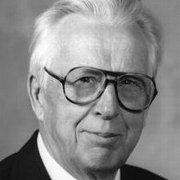The Verner E. Suomi Technology Medal

Description
The Verner E. Suomi Technology Medal is granted to individuals in recognition of highly significant technological achievement in the atmospheric or related oceanic and hydrologic sciences. The term "technological" is used here in the broadest sense; it encompasses the entire spectrum of instrumentation, as well as observational, measurement, data transmission, and data analysis and synthesis methodologies.
Nominations are considered by a committee comprised of two members each from the Atmospheric, Hydrologic, and Oceanographic Research Awards Committees, which makes a recommendation for final approval by AMS Council. The chair and chair-elect of the committee shall rotate each year among the three Research Awards Committees.
Nomination Process
Thank you for your interest in submitting a nomination! AMS membership is not required to submit an award nomination. Nominations are due by 1 May. The nominator is responsible for uploading the entire nomination package.
Requirements
- citation (25 word maximum)
- bibliography (if appropriate) (3 page maximum)
- nomination letter (3 page maximum)
- nominee Curriculum Vitae (if appropriate) (2 pages maximum)
- three (3) letters of support (2 page maximum each)
Verner E. Suomi (1915–1995)
Verner E. Suomi is considered the father of satellite meteorology.
Suomi was born in Eveleth, Minnesota and received his first degree from Winona Teachers College. He taught high school science and later, went on to attend the University of Chicago, earning a PhD degree in 1953.
By 1948, Suomi was among the earliest faculty members of the Department of Meteorology at the University of Wisconsin–Madison. Together with Robert Parent, in 1965, Suomi founded the Space Science and Engineering Center (SSEC), which designed the first satellite to provide weather imagery from a geostationary orbit. It was named the Applications Technology Satellite (ATS-1), included a Spin Scan Radiometer, and was launched on 6 December 1966. Suomi also was a leader in the development of McIDAS (Man-computer Interactive Data Access System) in 1972, displaying the images produced by his satellites such as SMS-1 in 1974.
On January 24, 2012, NASA renamed a recently launched NPP Earth monitoring satellite after Dr. Suomi. On that occasion, John Grunsfeld, associate administrator of NASA's Science Mission Directorate, said that "Verner Suomi's many scientific and engineering contributions were fundamental to our current ability to learn about Earth's weather and climate from space".